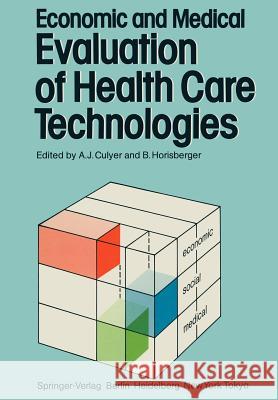Economic and Medical Evaluation of Health Care Technologies » książka
Economic and Medical Evaluation of Health Care Technologies
ISBN-13: 9783642694417 / Angielski / Miękka / 2011 / 405 str.
All too frequently, the largest effective barrier to interdisciplinary communication is jargon. The symposium whose proceedings appear in the following pages sought, of course, to eliminate unnecessary and obscurantist jargon; but it sought also to do something far more ambitious - to confront the intellectual issues that are attached to the use of the word "evaluation" in medicine and health services. To this end a carefully selected group of experts in medicine, epidemiology, and health econom ics was invited to present papers. They were selected for their reputations either as conceptualizers or as empirical evaluators, or - the rarest breed of expert - as both. The context was to be empirical. Three procedures were selected that had been subject to evaluation but that posed rather different types of problem. The first was the treatment of renal failure by dialysis of various kinds. This has a relatively long history of evaluation, with a large literature, and particularly raises broad policy is sues within the health services of Western societies as to - the size of programmes to be provided; the type, location, and mix of treatments; the selection of patients to receive treatment; and the measurement of the success of various strategies. The second was the treatment of duodenal ulcer by a new species of drug - the hista mine Hrreceptor antagonists (specifically, cimetidine)."











